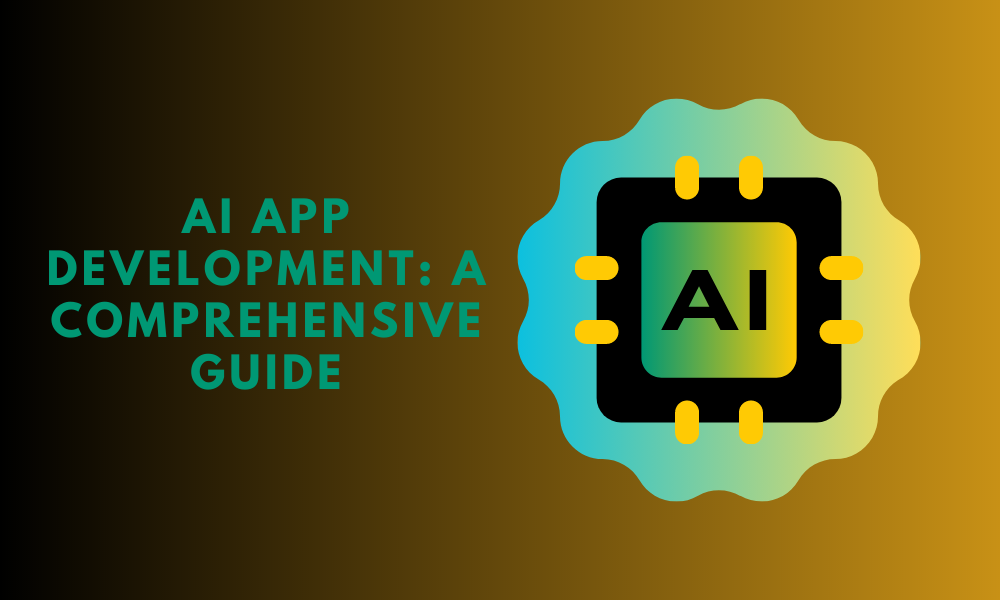Artificial Intelligence (AI) has revolutionized the way we interact with technology and has found its way into various aspects of our lives. AI-powered applications are becoming increasingly popular, offering innovative solutions across industries.
This comprehensive guide explores the key considerations and steps involved in AI app development:
Understanding AI App Development
AI app development involves creating applications that utilize machine learning, deep learning, and other AI technologies to perform tasks that traditionally require human intelligence. These tasks include image and speech recognition, natural language processing, predictive analytics, and more. The goal is to enhance user experiences, automate processes, and make informed decisions.
Key Considerations:
1. Idea Generation: Start by identifying the problem your app will solve. Whether it's automating customer support or recommending personalized content, a clear idea will guide your development process.
2. Data Collection: AI thrives on data. Collect and curate relevant data for training your AI models. Quality and quantity of data play a crucial role in the performance of your AI algorithms.
3. Choosing the Right Algorithms: Depending on your app's purpose, choose appropriate algorithms. For instance, use convolutional neural networks (CNNs) for image recognition and recurrent neural networks (RNNs) for natural language processing.
4. Model Training: Train your AI models using the collected data. This process involves feeding data into algorithms and fine-tuning them to improve accuracy and performance.
5. Development Tools and Frameworks: Utilize AI development frameworks like TensorFlow, PyTorch, or scikit-learn. These tools provide pre-built functions and structures to simplify the development process.
6. User Experience: Remember that user experience is paramount. The AI should seamlessly integrate into the app and enhance its functionality without causing confusion.
7. Ethical Considerations: AI apps often deal with sensitive data. Ensure compliance with data privacy regulations and implement measures to prevent biases in AI decisions.
Steps in AI App Development:
1. Defining Objectives: Clearly define what your AI app aims to achieve. Outline its features and functionalities.
2. Data Preparation: Clean, preprocess, and augment your data to ensure its quality and relevance for training.
3. Choosing Algorithms: Select the AI algorithms that align with your objectives. Consider factors like accuracy, complexity, and computational requirements.
4. Model Training: Train your chosen algorithms using labelled data. Adjust parameters iteratively to enhance accuracy.
5. Integration: Integrate the trained AI models into your app's architecture. This might involve API integration or direct embedding.
6. Testing and Validation: Rigorously test your app for different scenarios to identify and rectify any issues. Validation ensures your AI app behaves as expected.
7. User Feedback: Incorporate user feedback to make necessary improvements. This iterative process enhances your app's performance and user satisfaction.
8. Deployment: Deploy your AI app on the desired platform, whether it's a mobile device, web application, or other platforms.
9. Monitoring and Maintenance: Continuously monitor your app's performance and address any emerging issues. Regular updates and maintenance keep your app relevant and efficient.
Future Trends:
1. Explainable AI (XAI): As AI becomes more complex, the ability to explain AI decisions to users becomes crucial for transparency and accountability.
2. Federated Learning: This approach allows AI models to be trained across multiple devices while keeping data decentralized, enhancing privacy.
3. AIoT - AI of Things: The integration of AI with the Internet of Things (IoT) will lead to smart and autonomous devices that can make localized decisions.
Conclusion:
Artificial intelligence app development is a dynamic and transformative process. By understanding your app's objectives, collecting quality data, choosing appropriate algorithms, and maintaining a user-centric approach, you can create AI-powered applications that offer enhanced functionality and superior user experiences. Stay updated with the latest trends to continue pushing the boundaries of innovation in AI app development.





